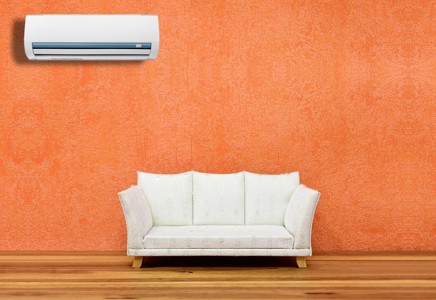The cold breeze of an air conditioner is a sign of relief on any scorching summer day. While you enjoy the cozy ambiance of your air-conditioned room, a lot goes on inside the piece of machinery to give you that cool breeze. One such vital thing is freon, without which your AC is unable to provide proper cooling.
Air conditioner freon is an essential component of any air conditioning system, as it is responsible for removing heat from the air and transferring it outside. Keep scrolling down to learn more about Freon and why it is vital for an Air Conditioner.
What is an air conditioner freon?
Unlike household refrigerators, air conditioners use a chemical instead of electricity to cool the air, i.e., Freon. Freon is a brand name for a number of refrigerants initially introduced by the DuPont Corporation in the 1920s and 1930s.
The name “Freon” has become a common brand, used to refer to any of the chlorofluorocarbon (CFC) or hydrochlorofluorocarbon (HCFC) refrigerants that have been developed and manufactured since the original product.
It is a gaseous compound made up of chlorine and fluorine that is very stable at low temperatures, hence used as a refrigerant in air conditioners. It is a colorless, odorless, and non-flammable gas in nature.
There are a number of different types of air conditioner freon used in different systems and countries. The types of freon include R-22, R-410A, R-22/R-410A blends, R-410B, R-507, and R-404A. R-22 is the most common freon that has been used in central air conditioners for decades.
How does the air conditioner freon work?
Air conditioner freon works by using a chemical refrigerant to absorb heat from the air in the room or space and then release it outside. The refrigerant is typically a type of hydrofluorocarbon (HFC) that is non-toxic and non-flammable.
The compressor within an air conditioner compresses the refrigerant gas, which causes it to become hot. This hot gas is then passed through an expansion valve, reducing its pressure, and causing it to cool significantly, forming a liquid. After that, this liquid passes through a series of coils known as the evaporator coils, where it absorbs the heat from the air inside the room.
The liquid is then sent back to the compressor, where it is compressed again and subsequently released outside the building as a hot gas. The process is repeated until the desired temperature is reached.
The importance of air conditioner freon
Freon is an integral part of air conditioning systems because it helps to maintain a comfortable and consistent room temperature. Without it, the air conditioner would be unable to function properly, preventing it from cooling houses, offices, etc., in hot weather.
It also helps to reduce humidity and remove airborne particles, such as dust and pollen, from the air. Additionally, freon is non-toxic and non-flammable, making it safer to use than other types of refrigerants.
In short, your air conditioner cannot function at all without the freon. You also cannot substitute freon with another refrigerant. Thus, the only way to ensure that your AC keeps providing a great cooling level is by ensuring that it has the right freon level.
It is also pertinent to mention that maintaining the right freon level is also essential, as your air conditioner would only be able to deliver proper cooling with the right freon levels. The low, as well as high levels of refrigerant in your system, will lead to problems.
A low refrigerant level can be the root of a lot of problems in your air conditioner. Most of the time, a low refrigerant level results from a leak or breach in the air conditioning system.
With a low refrigerant level, an air conditioner will have to work harder than usual to provide sufficient cooling. Frost will begin forming on the evaporator’s coils, and all other air conditioner components will have to work under extra stress. It will ultimately increase your electricity bills and eventually lead to a major breakdown.
Although a high level of refrigerant in an air conditioner is a rare case, it’s not an impossible thing. The excess refrigerant level can put extra pressure on the system components, damage the compressor, and cause the system to shut down abruptly. Eventually, you will be left with no choice but to replace the compressor.
How to identify a freon leak
If your air conditioner is experiencing a freon leak, there are certain signs that you can look for.
-
If you notice that the air being blown by your AC feels warmer than it should, there is a chance that the system is experiencing a freon leak.
-
A freon leak will put the entire system under pressure, which can also result in a significant drop in airflow.
-
If your AC is making strange noises, there might be a leak in the system.
-
If your AC is leaking water, there is a chance that freon is a leak in your ac.
-
If you notice that your AC is cycling on and off frequently, it may be due to a leak.
-
If you notice your energy bills increasing, there is a high chance of a freon leak.
If your AC is leaking freon, you should have it repaired as soon as possible. Ignoring a freon leak can lead to serious health and environmental issues. The leak can also result in higher energy bills, as the AC will work harder to keep the house cool.
Endnote
Air conditioner freon is a vital substance that helps your air conditioner do what it is supposed to do, i.e., cool down the room temperature. If you observe that your AC is acting up, check the level of freon and add more if necessary. You can make your air conditioner last longer by filling it adequately with freon and ensuring that it continues to provide you with efficient cooling all summer long.





